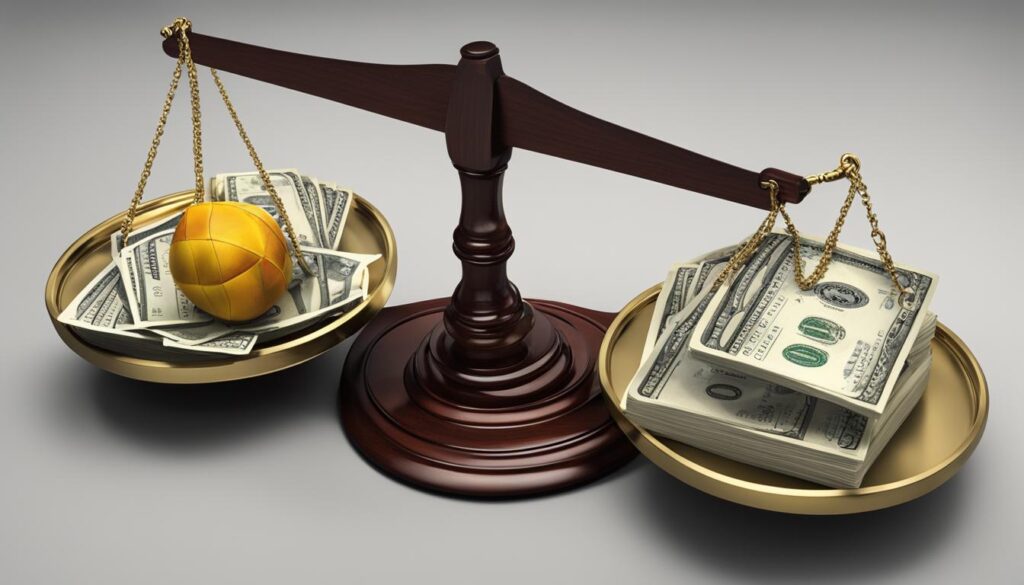Physical Address
304 North Cardinal St.
Dorchester Center, MA 02124
Physical Address
304 North Cardinal St.
Dorchester Center, MA 02124

In the midst of a divorce, the question that looms large is: How much is a partner entitled to?
This complex puzzle of asset division and alimony rights is more than just numbers and laws. It’s about fairness, future security, and sometimes, raw emotions.

Imagine you’re splitting a pie, but it’s not just any pie. It’s a pie made of years of memories, hard work, and dreams.
Who gets the bigger slice? Does the length of the marriage matter? What about the non-financial contributions?
We’re diving deep into the heart of divorce settlements. From untangling joint assets to decoding alimony mysteries, we’ve got you covered. Stick with us to unravel the intricate details of how divorce reshapes financial landscapes.
Ready to find out what you’re truly entitled to? Keep reading.
When you’re going through a divorce, understanding how your assets will be divided is crucial. This involves distinguishing between different types of property and knowing the laws that apply in your state.
Community property is everything you and your spouse own together. It typically includes earnings, property bought with those earnings, and debts accrued during the marriage.
In contrast, separate property refers to items owned solely by one spouse, often acquired before the marriage or as a personal gift or inheritance.
Equitable distribution and community property states dictate how marital assets are split. Equitable distribution states divide assets fairly but not necessarily equally, considering factors like the length of the marriage and each spouse’s economic circumstances.
On the other hand, in community property states, spouses typically receive an equal share of the community assets and debts.
Your rights to certain assets depend on whether they’re considered community or separate property. For example, the family home can be complex to divide, with options including one spouse buying out the other’s interest or selling the property and sharing proceeds.
Retirement accounts, businesses, and other financial investments are subject to division based on your state’s laws on property division.
Remember, for specific guidance on how these principles apply to your situation, consulting with a divorce attorney is often invaluable.

When you’re navigating a divorce, understanding how your financial interests can be affected is crucial. Your financial situation post-divorce will be shaped by topics such as alimony, retirement benefits, and your joint obligations.
Alimony, also known as spousal support, can be a critical component in a divorce settlement. Its purpose is to provide financial assistance to the lower-earning spouse.
The amount and duration of alimony depend on various factors such as the length of the marriage, each party’s earning capacity, and the standard of living established during the marriage. When planning your financial support, consider these variables carefully.
Dividing retirement accounts and pensions can be complex. Your financial plan after divorce might include obtaining a Qualified Domestic Relations Order (QDRO), which allows for the division of a pension or retirement plan without suffering tax penalties.
Ensuring a fair distribution of these assets is important for maintaining your financial security in later years. For guidance on splitting these assets, you should review retirement plans and divorce.
Debts and loans are also your responsibility, not just assets. These shared obligations can impact your credit and should be addressed in the divorce proceedings. Be mindful of how debts are divided, and consider the agreement’s enforceability against creditors, who may not be bound by your divorce decree.
For strategies to handle liabilities, explore handling money and property during divorce.